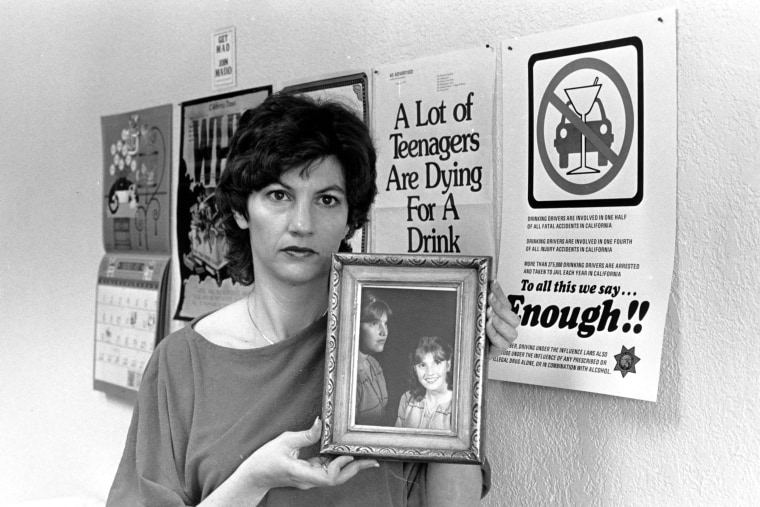Throughout this challenge, we've investigated how mothers consider their role in the private sphere and how that role translates into the public sphere. One of our nation’s most iconic examples of this is Mothers Against Drunk Driving.
The organization was founded by Candy Lightner in 1980. The impetus: Candy's daughter, Cari, was killed by a repeat drunk-driving offender who was out on bail from a hit-and-run drunken driving charge. A June 16, 1984 article from the Washington Post, written by Jay Mathews, explains:
Lightner had never organized anything, never given a public speech. But within a week she had created Mothers Against Drunk Drivers (MADD), composed of herself, her father and her friend Sue LeBron.
“I was very mad, I was very bitter, there were elements of revenge,” she said. Cari’s twin sister, Serena, was a constant reminder of the lost daughter. “I felt that if I did nothing, nothing would happen,” Lightner said.
Lightner was soon joined by mother Cindy Lamb, whose five-and-a-half-month-old daughter, Laura, was the victim of a drunk driving crash that left her severely injured. In October of 1980, the two mothers held a national press conference on Capitol Hill. Within four years, the organization grew to more than 250 chapters in 40 states.
MADD lobbied for political changes that reflected the organization’s mission, including raising the national drinking age to 21. Their advocacy, in part, contributed to President Reagan signing the National Minimum Drinking Age Act in 1984.
In this case, mothers drew on personal tragedy to build an organization focused on preventing that tragedy from occurring in the lives of others.
The organization does not state that only mothers are motivated to prevent drunk driving – as you can see in this PSA. It states:
You became that somebody who does something by joining MADD. In short, you became a Mother. You might be a Mother who’s also a father. You might be a Mother who’s never had children. It doesn’t matter, because it’s not about being a woman or a parent… it’s about taking responsibility – being the somebody who does the something that needs to be done.
In our contemporary moment, we have seen a rise in activism and organization-building that follows a similar model to MADD.
This last week of our challenge will focus on mothers who have experienced personal tragedy and, as a result, entered into activism and political organizing. We will specifically look at mothers responding to gun violence.
Assignment: Do you know any other organizations that frame their mission using the language of motherhood?
